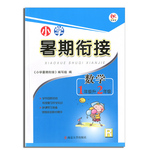
完形填空。
Coffee has been a part of people’s lives for 1 years, and it is still a favorite drink in the world. Here is a story of coffee and 2 it was discovered.
The story 3 us coffee was discovered in Africa 4 . One day a farmer 5 his goats, and he saw them 6 some berries(种子) from a plant. The goats became 7 after they ate the berries. The man felt tired, 8 he decided to try the berries, too. 9 , he didn’t feel tired any more. Coffee plants were thus discovered. The coffee 10 from Africa to other countries. After that the farmers started to grow coffee plants there, especially in South America.
( )1. A. thousand of B. thousand C. thousands of D. a thousand of
( )2. A. how B. why C. what D. who
( )3. A. says B. speaks C. talks D. tells
( )4. A. long, long time ago B. long, long times ago
C. long, long time before D. long, long time later
( )5. A. watch B. watches C. was watching D. is watching
( )6. A. eat B. eats C. ate D. has eaten
( )7. A. very tired B. very active C. badly ill D. fast asleep
( )8. A. but B. or C. because D. so
( )9. A. For his great surprise B. With his great surprise
C. To his great surprise D. To his great surprises
( )10.A. were taken B. were brought
C. was taken D. brought
 学而优暑期衔接南京大学出版社系列答案
学而优暑期衔接南京大学出版社系列答案 Happy holiday欢乐假期暑假作业广东人民出版社系列答案
Happy holiday欢乐假期暑假作业广东人民出版社系列答案科目:初中英语 来源: 题型:
There are some stories behind English words.
You've spent a lot of time studying how to use English in a proper way. But have you ever wondered why English speakers say some of the things they say? For example, why do they say "an easy task" is "a piece of cake"? Why do the two letters "OK" means "all right"?
Many English words and phrases have stories behind them. Sometimes these stories can help us look back into old western history. Let's take a look at a few of the original * common English words and phrases:
OK
"OK" was an American who lived in the 19th century. His name was "Old Kinderhook". In one year he was trying to take the place of the leader of his town. His supporters went around the town shouting " OK \ OK \" The supporters thought their future leader was " all right". The expression caught on, and now if something is "all right" , people like to say "OK|"
Boss*
Is your boss nice to you? If not, just be glad you weren't living in the old times. Back to that time, bosses could do anything bad to their men and could even beat* them! That explains why the word "boss" comes from an old German word meaning "to beat".
A piece of cake
A famous American writer named Ogden Nash lived in the 1930s. Many readers enjoyed his poems and wrote them down in their notebooks. In one of his poems, Nash wrote, " Her picture's in the papers now, and life's a piece of cake. " His readers found these words interesting and quickly wrote them down. They thought that if one picture in a newspaper could make you famous, wouldn't life be easy?
For nearly 70 years, "a piece of cake" has meant any task or activity that is easy.
1. Some of English words can tell us stories about_________.
A. how people learned English B. how English speakers create the words
C. how people spoke English D. how people taught others to speak English
2. The word "boss" in old German means "_________".
A. to work B. to help C. to beat D. to kill
3. "OK" comes from "_________".
A. Old King B. Old Kindman C. Old Kinderhook D. Old Mcdonald
4. In this passage "a piece of cake" means "_________".
A. an easy task or activity B. a difficult task or activity
C. a simple newspaper to read D. a famous picture in a newspaper
查看答案和解析>>
科目:初中英语 来源: 题型:
句型转换。
按要求改写下列各句, 每空一词。
1. My sister is ill. I must take care of her at home.(改为同义句)
My sister is ill. I must__________ __________ her at home.
2. Lin Tao often helps me with my Chinese. (对划线部分提问)
__________ __________does Lin Tao help you with your Chinese?
3. Tom goes to bed at ten in the evening. (改为否定句)
Tom __________ ________ to bed at ten in the evening.
4. They always see a film on Saturdays. (改为同义句)
They always _______ _______ ________ _________ on Saturdays.
5. I sleep nine hours every night. (对划线部分提问)
__________ __________ __________do you sleep every night?
查看答案和解析>>
科目:初中英语 来源: 题型:
— May I watch TV after dinner, mom?
— No, you . But you finish your homework first.
A. mustn’t, can B. must, can’t C. can’t, must D. can’t, mustn’t
查看答案和解析>>
科目:初中英语 来源: 题型:
书面表达。
假设你是李华,Summer Camp要招聘一名帮助孩子的人员,请根据要求和词汇提示,写一封应聘信,介绍自己的个人情况、兴趣爱好和能力。信的开头已给出。
要求:1.有完整的书信格式;2.词数:70词左右。
词汇提示:Li Hua,15 years old, No.7 Middle School, reading, computers, swimming, basketball play the violin, sing, dance
Dear sir,
I want to join your Summer Camp to help the children with music, sports and computer. __
________________________________________________________________________________________________________________________________________________________________________________________________________________________________________________________________________________________________________________________________________________________________________________________________________________________________________________________________________________________________________________________________________________________________________________________________________________________________________
I think I can be good with the children and I hope to get your letter soon.
Yours
Li Hua
查看答案和解析>>
科目:初中英语 来源: 题型:
The world is becoming smaller and smaller because the Internet gets us _______.
A. less B. more C. closer D. farther
查看答案和解析>>
科目:初中英语 来源: 题型:
London’s Chinese community (社区) dates back to the 18th century, when a small number of Chinese sailors moved to the city to work in Limhouse, east London. As time went on, other Chinese people came to this area and Limhouse began to be known as “Chinatown”. However, London’s Chinese community remained very small for many years: at the start of the 20th century, there were just 545 Chinese people in Britain.
After the Second World War, many farmers in Hong Kong lost their jobs and came to London. As Limhouse had been almost destroyed during the war, they settled (定居) in a different area—a part of central London near Leicester Square. This area is now what Londoners call Chinatown.
At first, the new immigrants (移民) found it difficult to get jobs. In the 1950s, however, a small Chinese restaurant opened in London. Many British people visited it and said that Chinese food was wonderful! Suddenly, Chinese restaurants and take-aways started opening in every part of the city. Instead of too little work, the new Chinese immigrants now found that they had too much! They worked as cooks, managers or waiters. Most of them enjoyed their lives and arranged their friends and relatives to join them from overseas.
As time went by, London’s Chinese community became more and more successful. The sons and daughters of the original restaurant workers studied and worked very hard. And most went on to get highly paid jobs. Many Chinese families left Chinatown and moved to the more expensive outskirts. Chinatown, however, is still as lively as ever.
1. When did the first Chinese immigrants come to London?
A. In the 1950s.
B. More than 200 years ago.
C. After the Second World War.
D. At the start of the 20th century.
2. Why did many Chinese immigrants come to London in 1950s?
A. Because it was easy for them to get jobs there.
B. Because Limhouse had been almost destroyed during the war.
C. Because many British people enjoyed Chinese food.
D. Because their children could study there and get highly paid jobs.
3. In the 1950s, Chinese immigrants came to London and worked as ______.
A. sailors B. farmers
C. sailors and farmers D. restaurant workers
4. Where is London’s Chinatown now?
A. In the east of London. B. In Limhouse.
C. Not far from Leicester Square. D. Outside the city.
5. According to this passage, if people live in the outskirts of a city, they live ______.
A. in the village B. far away from the city
C. in the centre of the city D. in the outer areas of the city
查看答案和解析>>
科目:初中英语 来源: 题型:
The clock is the wall and the door is the wall.
A. in; in B. on; on C. in; on D. on; in
查看答案和解析>>
湖北省互联网违法和不良信息举报平台 | 网上有害信息举报专区 | 电信诈骗举报专区 | 涉历史虚无主义有害信息举报专区 | 涉企侵权举报专区
违法和不良信息举报电话:027-86699610 举报邮箱:58377363@163.com